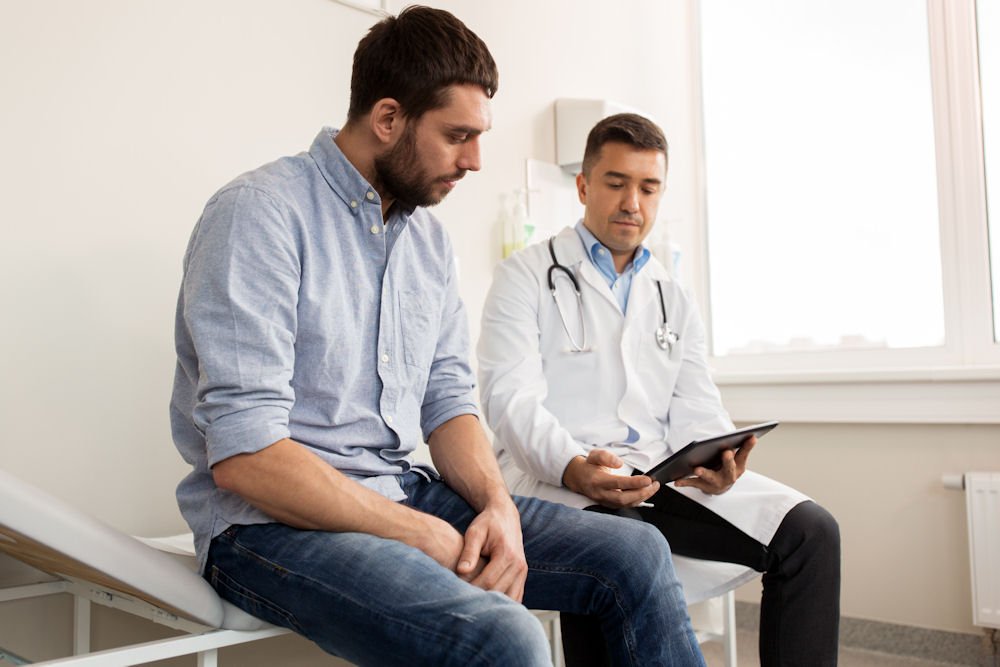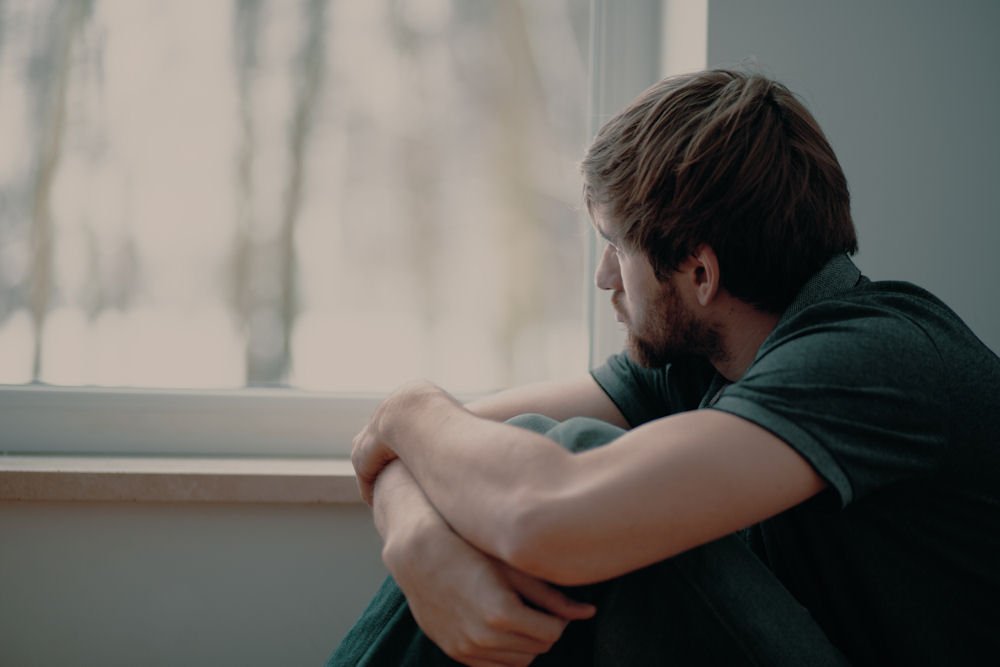
On their own, suffering from obsessive-compulsive disorder (OCD) and suffering from addiction can come with unique challenges that can greatly impact a person’s ability to live a seemingly “normal” life. While both conditions are treatable, they often require extensive treatment.
What happens though when someone is suffering from both OCD and addiction at the same time? On this page, we will not only answer that but also go more in-depth about OCD, the connections between OCD and addiction, and how Golden Gate Recovery can help with treatment for OCD and addiction.
A mental health condition, obsessive-compulsive disorder is characterized by persistent, intrusive thoughts (obsessions) and repetitive behaviors or mental acts (compulsions) performed to alleviate the anxiety caused by these thoughts.
While it is not abnormal to experience the occasional obsessions or compulsions associated with OCD, someone suffering from OCD will experience these thoughts in a way where it actively disrupts their ability to go about their daily life and can even consume hours of their day.
For example, while it may be normal to run back inside and check to make sure you turned the oven off or check to make sure to locked the door, someone suffering from OCD may continue to check those things even after the initial checking. Additionally, the urge to want to check again may consume them to the point where they can’t focus on anything else.
The example above about compulsively checking on something is just one example of OCD. There are many different types of OCD, all with their own unique set of compulsions and obsessions.
Below are some of the most common types of OCD:
Constantly checking to ensure tasks (like locking doors or turning off appliances) have been completed correctly.
Intrusive thoughts about causing harm to oneself or others, often accompanied by rituals to “prevent” harm.
Fear of germs or uncleanliness leading to excessive cleaning or avoidance behaviors.
A need for things to be arranged in a specific, “just right” way to reduce anxiety.
Obsessions without visible compulsions, often involving mental rituals like repetitive counting or reassurance-seeking.
Because symptoms of OCD aren’t always viewed through the prism of having a legitimate, serious mental health condition and may just be viewed as a “quirk”, it’s important to not just understand what OCD is but also what the symptoms of the condition are. Without properly identifying and diagnosing OCD, it can’t be treated.
If you think that you or someone you know may be suffering from OCD, below are some of the signs to keep an eye out for:
When someone is also suffering from a substance use disorder, in addition to obsessive-compulsive disorder, they may also display common signs of an addiction in addition to some of the OCD symptoms listed above.
These additional signs and symptoms include:
Someone suffering from both OCD and addiction co-currently may find themselves in a seemingly endless cycle where their OCD exacerbates their addiction which, in turn, worsens their OCD.
The reason for this seemingly never-ending cycle is that, while both conditions involve attempts to manage distressing emotions and thoughts, they are actually both making the issues worse and not helping.
For some individuals suffering from OCD, the constant anxiety caused by obsessions can feel unbearable. When this happens, they may find themselves turning to drugs or alcohol as a form of self-medicating to get any sort of relief, even if it is only temporary.
While this may appear to be working, and the person may even experience brief periods of relief in the short-term, long term the constant use of drugs and alcohol may be making their OCD worse due to the drugs or alcohol effects on the brain.
For example, stimulants may heighten anxiety and intrusive thoughts, while depressants can impair cognitive functioning, making it harder to resist compulsions. The only way for this cycle to be broken is through dual-diagnosis treatment where both conditions can be treated simultaneously.
While there has been no evidence that shows that OCD directly causes addiction, those suffering from OCD may have a significantly greater risk of developing an addiction compared to someone who doesn’t have OCD.
As we touched on above, someone with untreated OCD may feel so desperate for relief that they will do whatever they can to get even temporary relief including turning to illicit or abusive substances such as alcohol, opioids, or benzodiazepines.
However, as is often the case with illicit substances, as they continue to use these drugs or alcohol for relief, their body and brains become dependent on the substance for any feelings of normalcy, leading to a cycle of addiction.
One of the most common questions about OCD and addiction is whether compulsive behavior is the same as addiction. While the two share similarities, they are fundamentally different.
Compulsion is defined as a repetitive behavior or mental act performed to reduce anxiety or prevent a feared outcome. Compulsions are often not pleasurable, instead done in a way that feels more like an obligation than anything else. On the other hand, addiction often involves some sort of “reward”, such as the effect the drug has on the body and the brain to make it feel pleasurable.
One trait that the two do share is the need to continue doing them despite the negative consequences. Many people who have OCD know what they are doing isn’t healthy for them, yet they continue doing it because they feel as though they have no other option. The same can be said for addiction. Despite knowing the negative consequences associated with the substance use, or even attempts to stop, the person continues using because stopping comes with unpleasant and even possibly dangerous consequences (withdrawals).
Men often face unique challenges when seeking help for OCD and addiction due to societal expectations and stigma. Cultural norms may discourage men from expressing vulnerability or admitting they need help, leading many to delay treatment. However, acknowledging the need for support is a sign of strength, and early intervention can make a significant difference in recovery.
Suffering from OCD and addiction is completely treatable through a specialty treatment program called dual diagnosis treatment. Dual diagnosis treatment in Marin County is designed to address several different co-occurring disorders (in this case OCD and addiction) by trying to better understand and address the underlying causes that may have led to the development of the two conditions.
Treatment for co-occurring disorders, such as OCD and addiction often involves:
Various medications are often administered throughout the various phases of treatment to both address, manage, and treat the symptoms associated with withdrawals from the substance or substances of abuse as well as manage the symptoms associated with OCD.
Evidence-based treatments like cognitive-behavioral therapy (CBT) and exposure and response prevention (ERP) are particularly effective for OCD. These behavioral health services in Marin County help with addressing the intrusive thoughts associated with OCD so that they can learn healthier ways to manage both the thoughts and accompanying behaviors.
On the addiction side, therapies like motivational interviewing (MI) and dialectical behavior therapy (DBT) can help with building coping skills, setting recovery goals, and managing cravings.
Holistic approaches like mindfulness and stress management techniques can be a great complement to the more traditional therapy approaches.
At Golden Gate Recovery we offer several holistic and experiential therapy and treatment options such as:

At Golden Gate Recovery, we understand the unique challenges of living with co-occurring OCD and addiction. Our holistic, evidence-based approach ensures that every client receives the care and support they need to achieve lasting recovery.
Don’t let OCD and addiction define your life. Treatment is available, and recovery is possible. Contact us today to take the first step toward a brighter, healthier future.
Get confidential help! Call Us Now for:

Golden Gate Recovery is a grass roots organization created by men in long term recovery with a simple mission: to continue strengthening our therapeutic and peer led community toward the goal of long term recovery for each client.